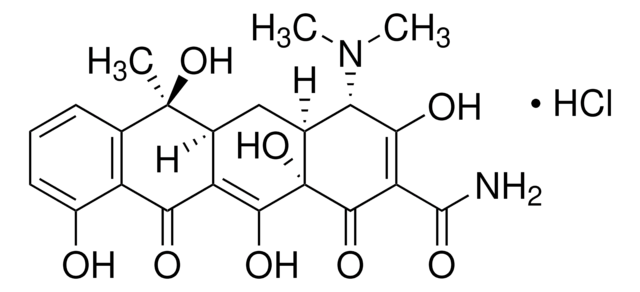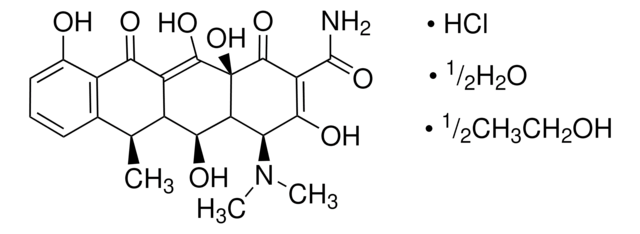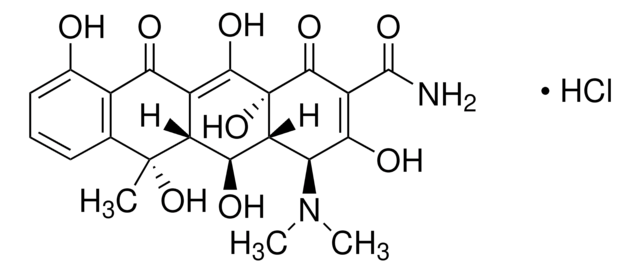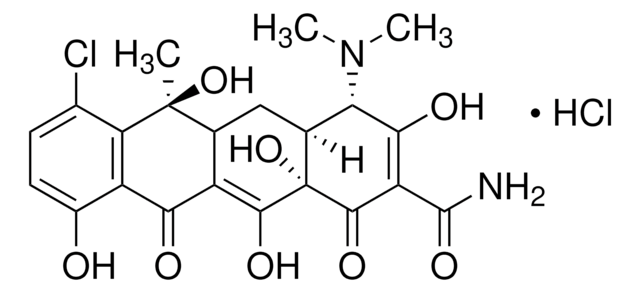T3383
Tetracycline hydrochloride
≥95% (European Pharmacopoeia HPLC assay)
Sinónimos:
4-Epitetracycline hydrochloride, Achromycin hydrochloride
About This Item
Productos recomendados
Quality Level
assay
≥95% (European Pharmacopoeia HPLC assay)
form
powder
storage condition
(Keep container tightly closed in a dry and well-ventilated place.)
color
yellow
mp
220-223 °C (lit.)
antibiotic activity spectrum
Gram-negative bacteria
Gram-positive bacteria
mode of action
protein synthesis | interferes
storage temp.
−20°C
SMILES string
Cl.CN(C)[C@H]1[C@@H]2C[C@H]3C(=C(O)[C@]2(O)C(=O)C(C(N)=O)=C1O)C(=O)c4c(O)cccc4[C@@]3(C)O
InChI
1S/C22H24N2O8.ClH/c1-21(31)8-5-4-6-11(25)12(8)16(26)13-9(21)7-10-15(24(2)3)17(27)14(20(23)30)19(29)22(10,32)18(13)28;/h4-6,9-10,15,25,27-28,31-32H,7H2,1-3H3,(H2,23,30);1H/t9-,10-,15-,21+,22-;/m0./s1
InChI key
XMEVHPAGJVLHIG-FMZCEJRJSA-N
¿Está buscando productos similares? Visita Guía de comparación de productos
Categorías relacionadas
General description
Application
Biochem/physiol Actions
Mode of Resistance: The effects are inactivated via a loss of cell wall permeability.
Antimicrobial spectrum: Includes a wide range of antimicrobial activity against gram-positive and gram-negative bacteria.
Caution
Preparation Note
Other Notes
signalword
Warning
Hazard Classifications
Aquatic Acute 1 - Aquatic Chronic 2 - Eye Irrit. 2 - Repr. 2 - Skin Irrit. 2 - STOT SE 3
target_organs
Respiratory system
Storage Class
11 - Combustible Solids
wgk_germany
WGK 2
flash_point_f
Not applicable
flash_point_c
Not applicable
ppe
dust mask type N95 (US), Eyeshields, Gloves
Elija entre una de las versiones más recientes:
¿Ya tiene este producto?
Encuentre la documentación para los productos que ha comprado recientemente en la Biblioteca de documentos.
Los clientes también vieron
Nuestro equipo de científicos tiene experiencia en todas las áreas de investigación: Ciencias de la vida, Ciencia de los materiales, Síntesis química, Cromatografía, Analítica y muchas otras.
Póngase en contacto con el Servicio técnico








